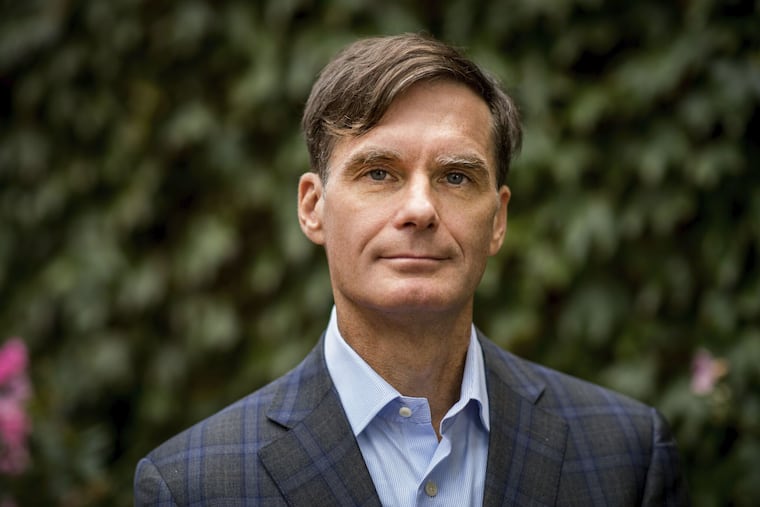Penn dementia expert on newly approved Alzheimer’s drug: ‘The data aren’t strong enough’
"It's not even certain that the drug works," Jason Karlawish said.

Well before the FDA approved aducanumab, the first new Alzheimer’s drug since 2003, many dementia experts were lining up to criticize the monoclonal antibody. Jason Karlawish, co-director of the Penn Memory Center, was among them.
In an article published late last month in Stat, a health news website, he said he would not recommend aducanumab, if approved, to patients. That stance will be hard to maintain now that the drug has been approved, he said Tuesday, but he will insist on serious conversations with patients and families about risks and benefits before prescribing a drug he thinks did not receive adequate testing.
The medication, which could cost up to $56,000 per year, was tested in people with mild cognitive impairment (MCI) and mild dementia in two Phase 3 clinical trials, but both were stopped early, and they yielded conflicting results.
Karlawish, who is the author of a new book, The Problem of Alzheimer’s: How Science, Culture, and Politics Turned a Rare Disease into a Crisis and What We Can Do About It, answered some questions about the new drug, whose brand name is Aduhelm.
» READ MORE: Dementia, Alzheimer’s have reached crisis point, Penn researcher says. Here’s what we can do about it.
Are you surprised by the FDA approval?
“I am. I’m surprised in particular that they used the accelerated approval pathway,” he said. That means officials looked at a “surrogate end point,” in this case the drug’s effect on amyloid, which is one of the hallmark proteins found in the brains of people with Alzheimer’s, rather than clinical measures such as how well patients were thinking or functioning in their daily lives.
“I think that’s a problem,” he said. “The data just aren’t strong enough to prove that reducing the amyloid level in persons with mild cognitive impairment or mild stage dementia translates into slowing disabling cognitive impairments.”
One of the studies found clinical improvements while the other did not.
Why then would the FDA have made this decision?
“The logic of an accelerated approval,” Karlawish said, “is that the disease is serious, life threatening and there are not existing therapies for it, and certainly Alzheimer’s ticks all of those.”
» READ MORE: I have Alzheimer’s. Here’s what happened when I traveled on SEPTA.
What would have been better?
Before approval, Karlawish wanted a third randomized, controlled trial that was not stopped early.
The FDA is now requiring Biogen, the drug’s maker, to conduct another randomized, controlled trial to “verify the drug’s clinical benefit.” If that trial fails, the FDA could withdraw approval.
The “design and conduct” of that trial will be “extremely important,” Karlawish said.
Will you prescribe aducanumab for your patients?
The drug is not yet available to the public. Because of its cost, insurance coverage will be important, Karlawish said.
“I will prescribe it, but it’s the kind of drug that requires a thoughtful conversation,” he said. He will also suggest that patients willing to try this drug should also consider clinical trials of other potential treatments.
Karlawish said he would be “hesitant” to use the drug outside of the groups it was tested in: those with MCI and mild dementia. They encompass about 2 million of the 6 million Americans with Alzheimer’s.
What are the downsides of this drug?
For patients, he said, the potential risks are changes in the brain that can cause confusion, falls, and headaches. These typically require patients to stop taking the medication. About 30% of patients have such side effects.
Balancing that are uncertain benefits. “It’s not even certain that the drug works,” he said. “It may work. It actually may not.”
From a societal standpoint, the drug is expensive. Karlawish thinks its price will likely exceed its value.
And, he worries that patients will choose the new treatment over participating in clinical trials.
Do you expect high demand for Aduhelm?
“Alzheimer’s is a devastating disease,” he said. “I can understand from a patient perspective wanting to take on the uncertainties and risks rather than doing nothing.”
He said other people are more risk averse or will have other medical conditions that make them poor candidates.